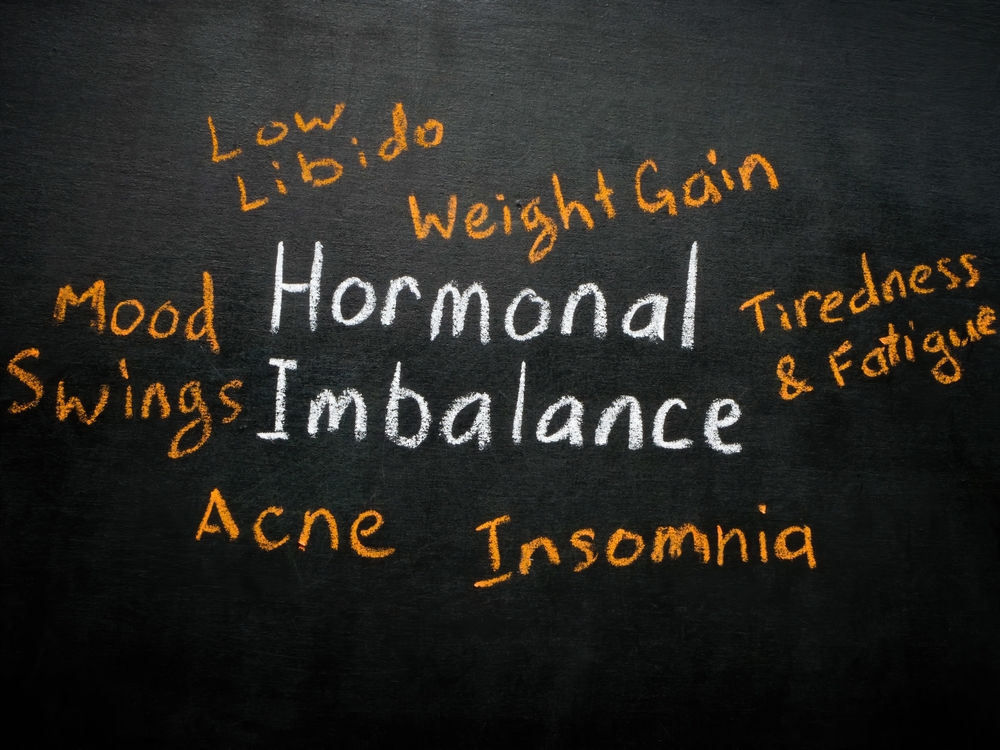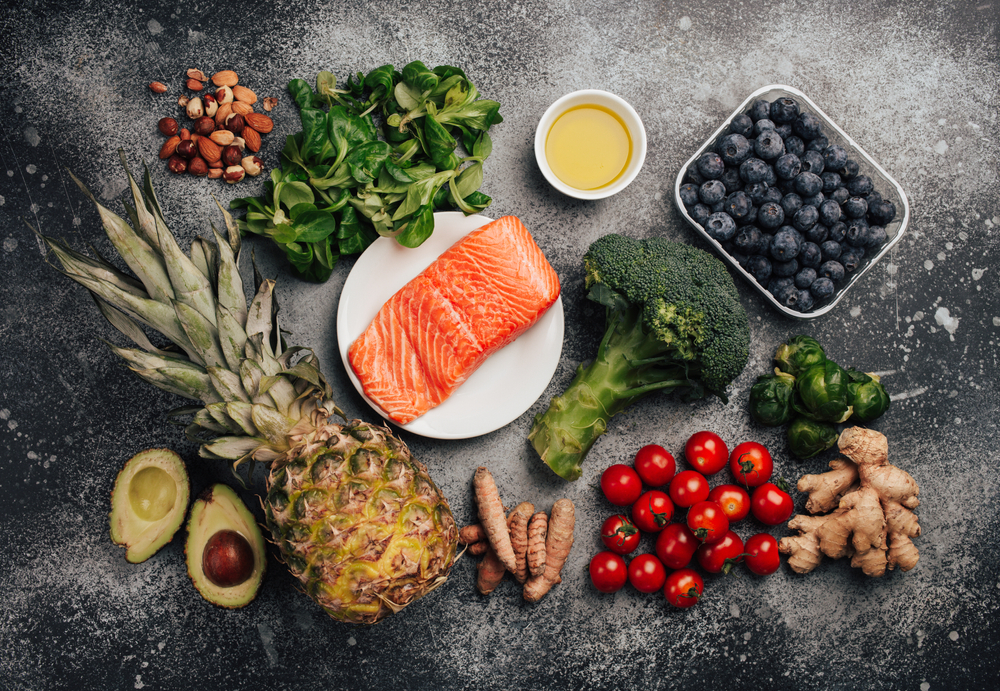WORDS ANAS ALMASWARY & PROFESSOR DR SUZANA SHAHAR
FEATURED EXPERTS
 ANAS ALMASWARY ANAS ALMASWARYMaster’s Student in Clinical Nutrition Faculty of Health Sciences Universiti Kebangsaan Malaysia (UKM) |
 PROFESSOR DR SUZANA SHAHAR PROFESSOR DR SUZANA SHAHARDietetic Program Centre for Healthy Aging and Wellness Faculty of Health Sciences Universiti Kebangsaan Malaysia (UKM) |
Are you tired of struggling with weight loss or weight gain despite your best efforts at diet and exercise? Do you find yourself constantly wondering why your body refuses to cooperate, leaving you feeling frustrated and defeated?
HOW HORMONES IMPACT YOUR WEIGHT
Hormones regulate our activity in many ways, not just as simple ‘on and off’ switches that determine if we feel like exercising.
They also influence weight gain and loss by controlling energy intake, appetite, and metabolic balance.
Ghrelin
A hormone produced mainly in the gut, ghrelin has been implicated in the regulation of food intake and meal frequency as well as energy balance.
High levels of ghrelin before meals and during fasting act to stimulate appetite by signaling hunger.
The levels of this hormone revert back to normal values after meals, to help regulate appetite and satiety.
Leptin
When you are overweight, your levels of leptin go up to tell your brain you have plenty of energy.
However, people with obesity can develop a resistance to leptin. Even when their leptin levels increase, their brain no longer recognizes the satiety signal, and they continue to overeat.
Weight loss helps to improve leptin sensitivity, making it easier to lose weight.
Insulin
This is another hormone associated with weight management.
It regulates blood sugar levels after meals, and is influenced by how often and what you eat.
Endurance exercises increase insulin sensitivity. This allows the body to better process carbohydrates and store less fat.
Thyroid hormones
Moreover, thyroid hormones (T4 and T3) also help to regulate your metabolism.
If your thyroid hormone levels lower, such as due to an underactive thyroid or hypothyroidism, your digestive system may act at a slower pace, bringing about weight gain.
When your thyroid is overactive (hyperthyroidism), your metabolism speeds up, and you may lose weight.
Cortisol
The stress hormone cortisol has also been shown to play a role in weight control and affects eating behavior by increasing motivation and consumption of junk foods.
Likewise, chronically stressed people may prefer more energy-dense comfort foods, leading to weight gain over time.
KNOWLEDGE LEADS TO UNDERSTANDING
It is important to understand how hormones like ghrelin, leptin, insulin, thyroid hormones, and cortisol interact with lifestyle behaviors such as diet, exercise, sleep, and stress.
This understanding enables the design of personalized weight control strategies. These strategies can help correct hormonal imbalances and support long-term, successful weight manage.
| YOU MAY HAVE HORMONAL IMBALANCE & SHOULD SEE A DOCTOR IF YOU: |
|
HOW OTHER FACTORS CAN LEAD TO HORMONE IMBALANCES
Several factors can cause hormone imbalances, including genetics, lifestyle choices, stress and anxiety levels, sleep patterns, and diet.
The balance of these factors can affect the hormonal control of ghrelin, cortisol, insulin, GLP-1, and leptin, which are important for appetite control and body weight balance.
For instance, increased psychological stress can affect hormone levels such as cortisol and ghrelin, changing eating behaviors.
Additionally, lack of sleep, poor dietary habits, and a sedentary lifestyle can contribute to hormonal imbalances, which may compromise weight control and metabolism.
Overall, a combination of genetic predisposition and environmental influences can lead to hormonal imbalances, potentially contributing to issues like obesity and difficulties in weight control.
NATURAL STRATEGIES FOR BALANCING YOUR HORMONES
- Increasing your water intake
- Adjust the macronutrient composition of meals.
- Eat more frequent smaller meals with moderate proteins and limited fats.
- Ensure that you have adequate sleep
- Take steps to reduce stress levels
- Incorporate at least 30 minutes of exercise a day into your daily routine.
Addressing these lifestyle factors and their impact on hormone levels can help many people achieve better hormonal balance and support effective weight control
Additionally, working with a team of professionals, including physicians, psychologists, dietitians, nutritionists, and exercise physiologists, for personalized strategies can further enhance hormonal balance and overall weight management.
References:
- Monalisa, R. (2015). Role of leptin in obesity. Research journal of pharmacy and technology, 8(8), 1073-1076. http://dx.doi.org/10.5958/0974-360X.2015.00185.7
- Schwarz, N. A., Rigby, B. R., La Bounty, P., Shelmadine, B., & Bowden, R. G. (2011). A review of weight control strategies and their effects on the regulation of hormonal balance. Journal of nutrition and metabolism, 2011, 237932. https://doi.org/10.1155/2011/237932
- Severo, J. S., Morais, J. B. S., de Freitas, T. E. C., Andrade, A. L. P., Feitosa, M. M., Fontenelle, L. C., de Oliveira, A. R. S., Cruz, K. J. C., & do Nascimento Marreiro, D. (2019). The role of zinc in thyroid hrmones metabolism. International journal for vitamin and nutrition research. Internationale Zeitschrift fur Vitamin- und Ernahrungsforschung. Journal international de vitaminologie et de nutrition, 89(1-2), 80–88. https://doi.org/10.1024/0300-9831/a000262
- Treasure, N.-O., Johnkennedy, N., Chinyere, O., Amarachi, I. P., & Chioma, N. (2022). The perspective of hormonal imbalance in humans: A review. Acta Scientific Clinical Case Reports, 3(11). https://www.researchgate.net/publication/368720563_Acta_Scientific_Clinical_Case_Reports_The_Perspective_of_Hormonal_Imbalance_in_Humans_A_Review_Case_Report



 PROFESSOR DR SUZANA SHAHAR
PROFESSOR DR SUZANA SHAHAR